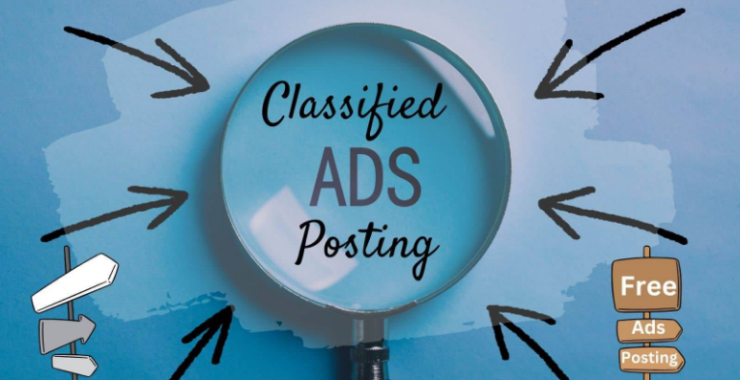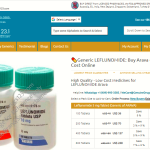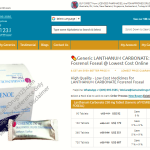Navigating Relapse in Addiction Recovery
Are you or someone you know struggling to maintain sobriety after addiction? Relapse is a common challenge in the recovery process, but it doesn’t have to be a setback. In this blog post, we’ll discuss effective strategies for navigating relapse and getting back on track towards long-term success in addiction recovery. So grab a cup of coffee and read on – let’s conquer this hurdle together!
What is Relapse?
When someone in addiction recovery experiences a relapse, it can be difficult to manage. A relapse is when an individual returns to Rehabs in Pune use after a period of abstinence. This can be a setback in the individual’s progress and may require additional treatment.
There are several factors that can contribute to a relapse. If an individual does not have a support system in place, they may be more likely to relapse. Additionally, if an individual is not taking care of their mental and physical health, they may also be more likely to relapse. Stressful life events can also trigger a relapse.
If you or someone you know is struggling with addiction, it’s important to seek professional help. There are many resources available to help people in addiction recovery navigate through a relapse and continue on their journey to sobriety.
Causes and Factors of Relapse
The causes and factors of relapse in addiction recovery are numerous and varied. Some common triggers include:
-Stress: One of the most common triggers for relapse is stress. Stress can come from any number of sources, including work, family, relationships, and finances. It can be difficult to manage stress in sobriety, and many people find that it is a trigger for relapse.
-Boredom: Boredom is another common trigger for relapse. When people are in early recovery, they often have to give up their old hobbies and activities. This can lead to boredom and a feeling of restlessness.
-Loneliness: Loneliness is another trigger that is often associated with boredom. In early recovery, many people lose their social support network. This can lead to feelings of loneliness and isolation.
-Anxiety: Anxiety is another common trigger for relapse. People in early recovery often have to deal with anxiety about their sobriety, their future, and their place in the world. This can be a very overwhelming feeling that can lead to relapse.
Dealing with Relapse: Managing Emotions
Dealing with relapse can be difficult and emotional. It is important to manage your emotions in a healthy way to avoid further damaging your recovery. Some tips for managing emotions during relapse include:
-Identify your triggers: What led to your relapse? Was it a certain person, place, or thing? Once you identify your triggers, you can avoid them or be prepared to deal with them in a constructive way.
-Talk to someone: Talking to a trusted friend or family member can help you work through your emotions and figure out a plan to get back on track.
-See relapse as a learning experience: What can you learn from this experience? How can you prevent it from happening again? Treating relapse as a learning experience can help you move on from it more constructively.
-Seek professional help: If you feel like you are struggling to manage your emotions on your own, seek professional help. A therapist can help you develop healthy coping mechanisms and work through any underlying issues that may be contributing to your addiction.
Coping Strategies to Prevent Relapse
If you or a loved one are in addiction recovery, it’s important to be aware of the signs of relapse and have coping strategies in place to prevent a relapse from occurring. Here are some coping strategies to prevent relapse:
- Identify your triggers. Triggers are anything that can cause you to start thinking about using drugs or alcohol again. Common triggers include stress, boredom, being around people who use drugs or alcohol, and being in environments where drugs or alcohol are present. Once you know what your triggers are, you can develop a plan to avoid them or deal with them in a healthy way.
- Develop a support system. A strong support system of family and friends can help you stay on track in your recovery and prevent relapse. If you don’t have a supportive network of people in your life, consider joining a recovery group or therapy program.
- Stay busy and engaged. One of the best ways to prevent relapse is to stay busy and engaged in activities that interest you and make you feel good. Doing things that make you feel good help keep your mind off drugs and alcohol and give you a sense of purpose. Find hobbies, sports, volunteering opportunities, or other activities that make you happy and stick with them.
- Be mindful of your emotions. It’s normal to have ups and downs in life, but it’s important to be aware of how your emotions can affect your recovery
Alternatives to Relapse
There are many alternatives to relapse for people in addiction recovery. Some alternatives include engaging in positive self-care activities, attending support group meetings, and speaking with a therapist or counsellor.
Positive self-care activities can help people in addiction recovery to cope with cravings and triggers. Some self-care activities that may be helpful include exercise, journaling, and spending time outdoors.
Attending support group meetings can also be beneficial for people in addiction recovery. Support groups provide a space for individuals to share their experiences and offer support to one another.
Speaking with a therapist or counsellor can also be helpful for people in addiction recovery. Therapists and counsellors can provide guidance and support as well as help people develop healthier coping mechanisms.
Creating a Support System
When you are in addiction recovery, it is important to have a support system in place. This can be in the form of family and friends, a therapist or counselor, or a support group. Having people to talk to who understand what you are going through can be a valuable resource.
It can be difficult to reach out for help, but it is important to remember that you are not alone. There are many people who care about you and want to see you succeed in recovery.Building a support system can take time, but it is worth the effort.
Conclusion
Relapse can be a harrowing experience in the recovery process, but with an understanding of what relapse is and strategies to handle it, you have tools to prevent further episodes. The key is to learn from your mistakes and remember there’s no such thing as a perfect recovery journey. With self-compassion, rebuilding hope, setting realistic goals and reaching out for professional help when needed – you’re better equipped than ever before on this path towards healthy addiction recovery.
For more Detail Visit: https://www.tumblr.com/blog/alcoholrehabilitationcentre
Name: Trucare Trust
Address: S.No. 258/2B, Plot No. 19, Khese Park, Lohegaon, Pune, 411032, Maharashtra, India
Contact Number: 9167943134







